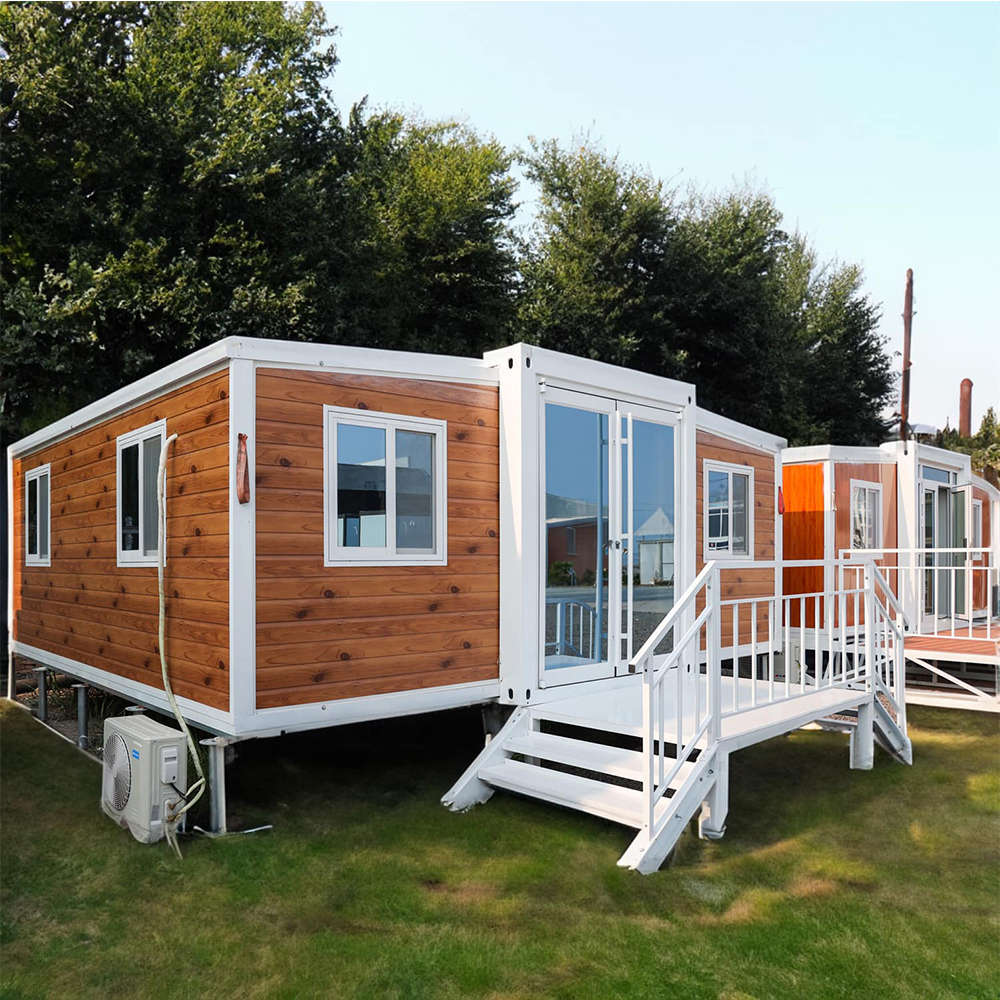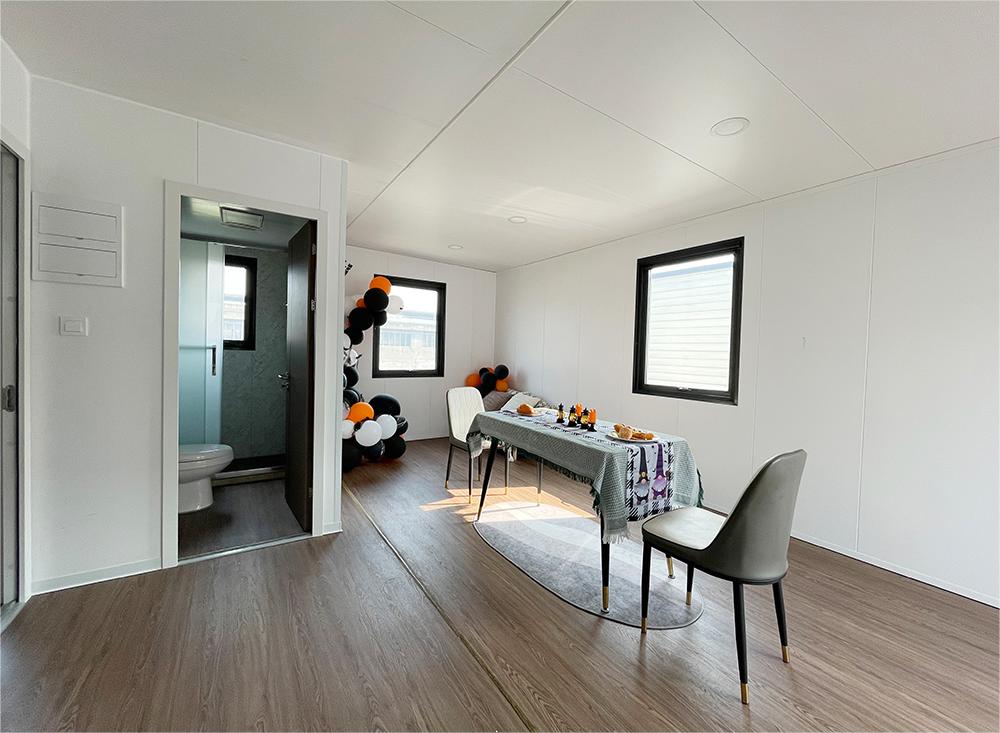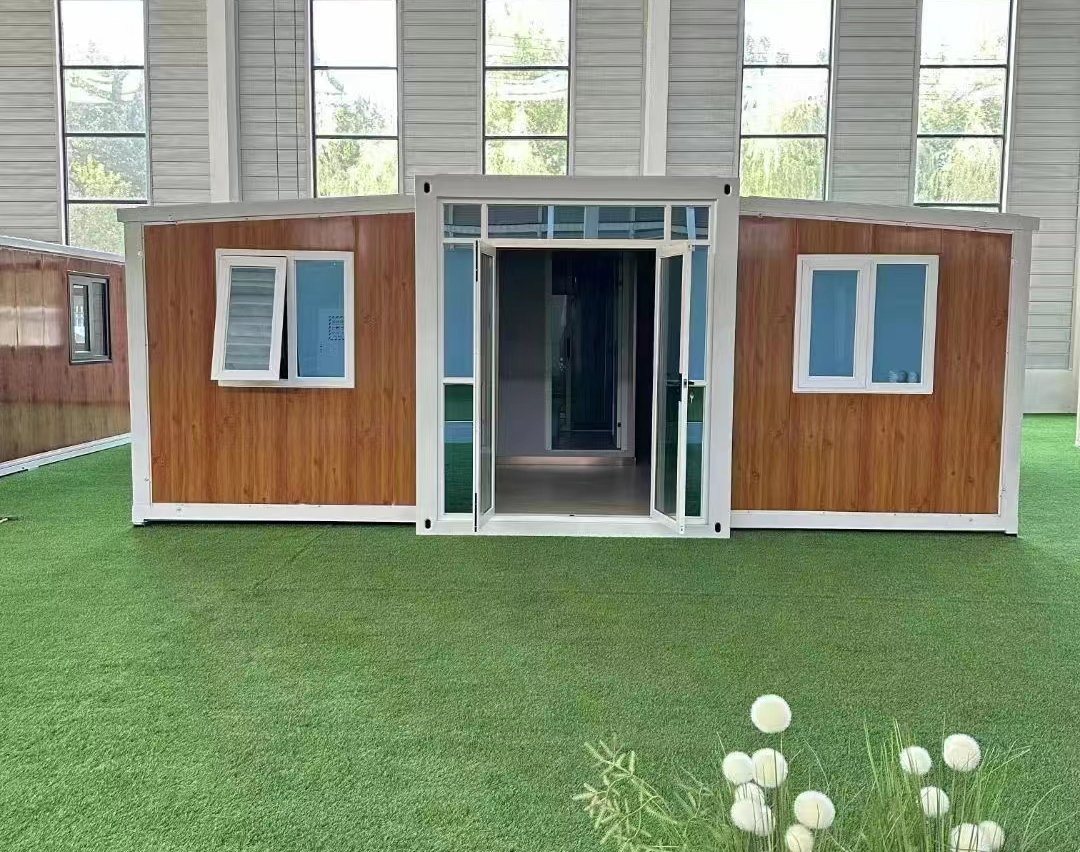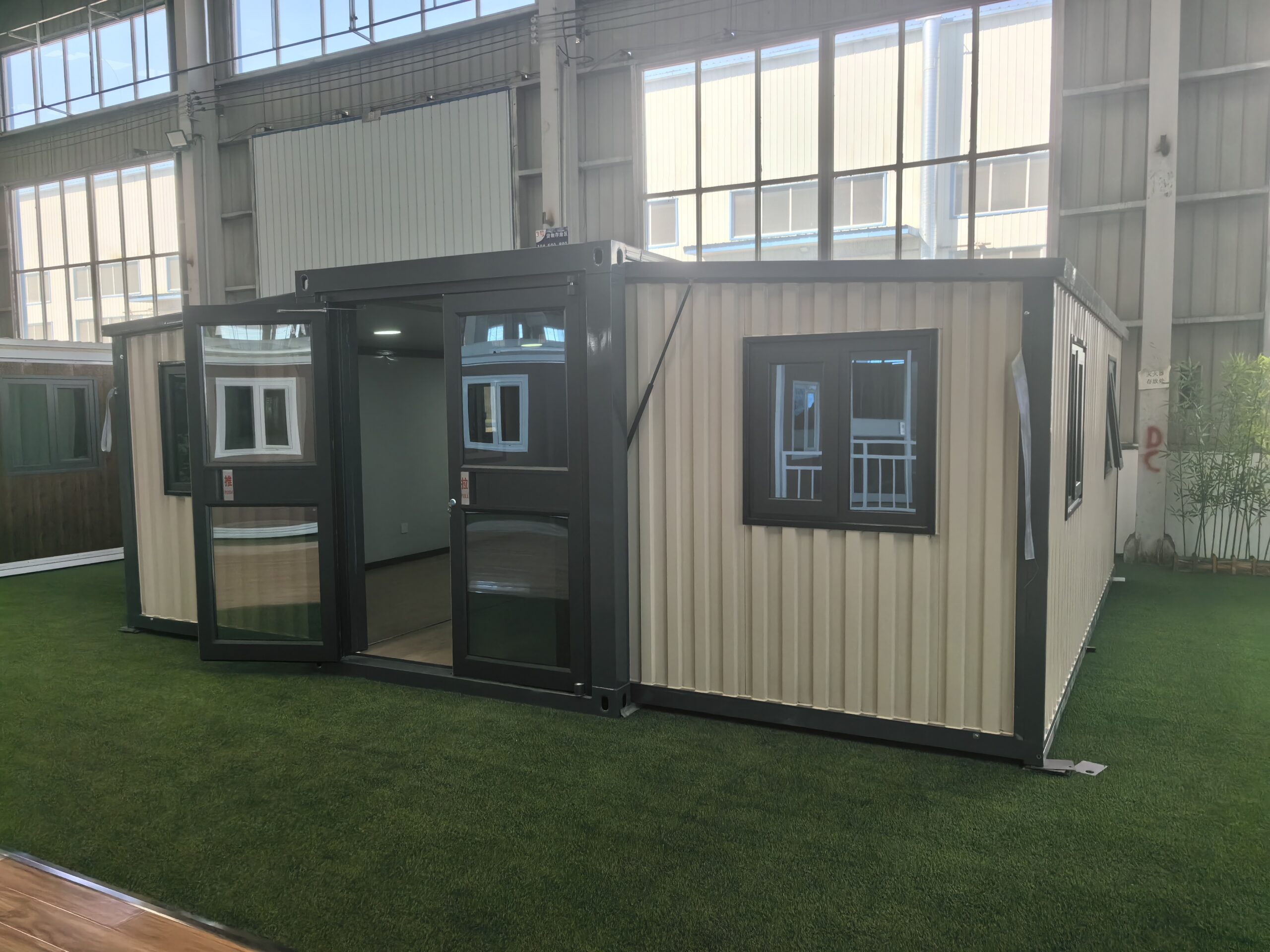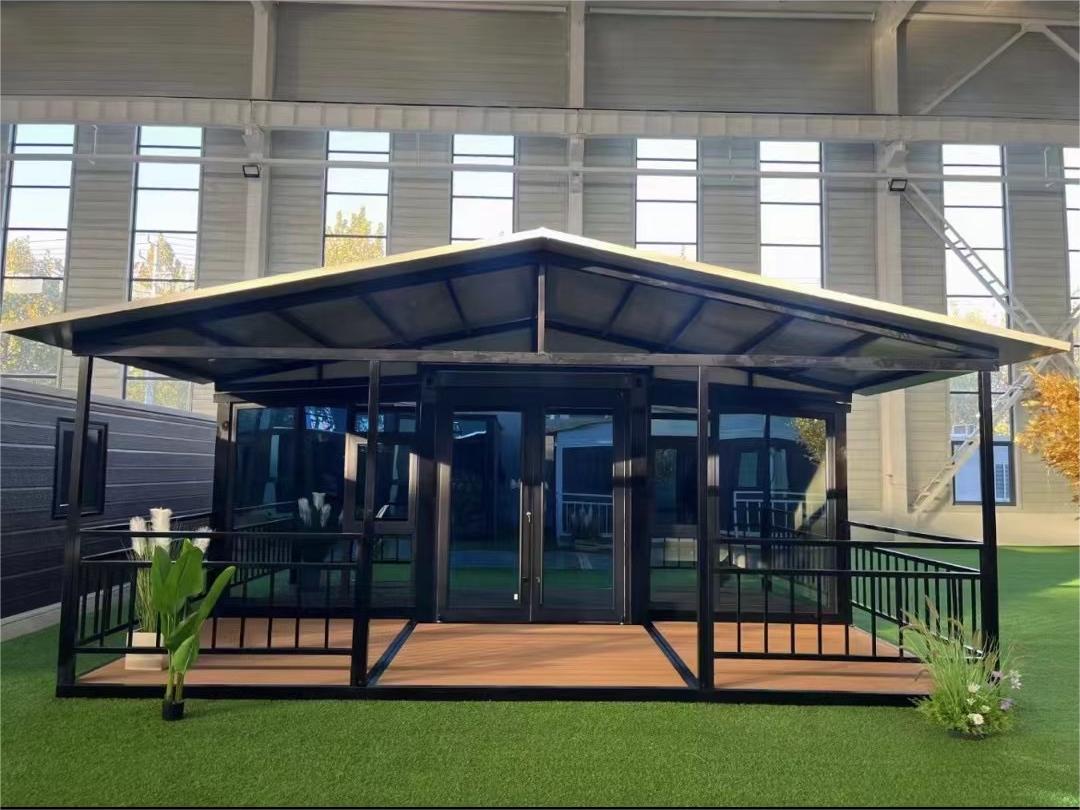Introduction
Australia’s housing market has experienced significant challenges in recent years, with rising property prices and a growing demand for affordable, sustainable living solutions. Expandable container houses have emerged as a viable and attractive option for many Australians, offering flexibility, affordability, and eco-friendly benefits. This article delves into the expandable container house market in Australia, examining its key features, benefits, and the reasons behind its increasing popularity. We will also explore the main customer demographics, common uses, and effective marketing strategies to reach potential buyers.
Market Overview
Expandable container houses, also known as portable homes, modular homes, or transportable homes, are gaining traction in Australia due to their cost-effectiveness and adaptability. These structures are constructed from shipping containers that can be expanded and customized to create functional living spaces. The modular nature of these homes allows for rapid assembly and disassembly, making them ideal for various applications from permanent residences to temporary accommodations.
Key Features of Expandable Container Houses
Affordability: One of the most appealing aspects of expandable container homes is their affordability. Compared to traditional housing, these homes are significantly cheaper to construct and maintain. The cost savings are due to the use of repurposed shipping containers and the streamlined manufacturing process.
Eco-Friendliness: Sustainability is a major selling point for expandable container houses. Using repurposed materials reduces waste, and the energy-efficient design minimizes the carbon footprint. Additionally, many of these homes are equipped with solar panels, rainwater harvesting systems, and other green technologies.
Flexibility and Customization: These homes offer a high degree of customization, allowing buyers to design a living space that suits their needs and preferences. Features such as expandable rooms, modern kitchens, and luxury bathrooms can be included, making these homes as comfortable as traditional houses.
Durability: Shipping containers are built to withstand harsh conditions, making them incredibly durable and resistant to extreme weather. This durability is especially important in Australia, where the climate can be unpredictable.
Benefits of Expandable Container Houses
Cost-Effective Housing Solution
In Australia’s competitive real estate market, finding affordable housing can be a challenge. Expandable container houses offer a solution by providing high-quality living spaces at a fraction of the cost of traditional homes. The lower price point makes these homes accessible to a broader audience, including first-time homebuyers, young families, and retirees looking to downsize.
Rapid Construction and Deployment
One of the key advantages of expandable container houses is the speed of construction. Unlike traditional homes that can take months or even years to build, container homes can be assembled and ready for occupancy in a matter of weeks. This rapid deployment is particularly beneficial for those in urgent need of housing, such as in the aftermath of natural disasters or for temporary work accommodations.
Eco-Friendly Living
Sustainability is a growing concern for many Australians, and expandable container houses offer an eco-friendly alternative to conventional construction. By repurposing shipping containers, these homes reduce the demand for new building materials and decrease waste. Furthermore, the integration of renewable energy sources and water conservation systems makes these homes environmentally responsible choices.
Versatility and Adaptability
The versatility of expandable container houses makes them suitable for a wide range of applications. From permanent residences and vacation homes to office spaces and pop-up shops, these structures can be adapted to meet various needs. Their modular nature allows for easy expansion or reconfiguration, providing homeowners with the flexibility to modify their living space as their needs change.
Customer Demographics and Common Uses
Key Customer Segments
Young Professionals and First-Time Homebuyers: With property prices soaring, many young Australians are finding it difficult to enter the housing market. Expandable container houses offer an affordable entry point, allowing this demographic to own a home without incurring significant debt.
Retirees: Many retirees are looking to downsize their living arrangements while maintaining comfort and convenience. Container homes provide a cost-effective solution that meets these needs, offering customizable layouts and modern amenities.
Environmental Enthusiasts: Eco-conscious consumers are drawn to the sustainability features of container homes. The use of recycled materials and the potential for off-grid living make these homes appealing to those looking to minimize their environmental impact.
Rural and Remote Area Residents: In remote or rural areas where traditional construction may be impractical or costly, expandable container houses offer a viable alternative. Their durability and ease of transport make them ideal for challenging environments.
Common Uses
Permanent Residences: Many Australians are opting for container homes as their primary residence due to their affordability and customization options.
Vacation Homes: Expandable container houses are popular as holiday homes, providing a cost-effective and low-maintenance option for vacation properties.
Temporary Accommodations: These homes are ideal for temporary housing needs, such as on construction sites, during home renovations, or for disaster relief efforts.
Commercial Uses: Beyond residential applications, container homes are being used as offices, retail spaces, and pop-up shops, showcasing their versatility.
Marketing Strategies for Expandable Container Houses
Digital Marketing
Search Engine Optimization (SEO): Optimize your website and online content with relevant keywords such as “expandable container homes,” “portable homes,” “affordable housing solutions,” and “eco-friendly homes.” This will help improve your search engine rankings and attract potential customers who are actively looking for these products.
Social Media Marketing: Utilize platforms like Facebook, Instagram, and LinkedIn to showcase your products. Share high-quality images, customer testimonials, and informative videos to engage with your audience. Participate in relevant groups and discussions to increase your visibility.
Content Marketing: Create valuable content that addresses common questions and concerns about expandable container houses. This can include blog posts, e-books, and videos on topics such as “How to Choose the Right Container Home,” “Benefits of Modular Homes,” and “Eco-Friendly Living Solutions.”
Email Marketing: Build an email list of interested prospects and send regular updates, offers, and informational content. Personalized emails can help nurture leads and convert them into customers.
Traditional Marketing
Trade Shows and Exhibitions: Participate in housing and construction trade shows to showcase your expandable container houses. These events provide an opportunity to connect with potential buyers and industry professionals.
Print Advertising: Place ads in relevant magazines, newspapers, and real estate guides. Highlight the key benefits of container homes and include high-quality images to attract attention.
Partnerships and Collaborations: Collaborate with real estate agents, builders, and developers to reach a wider audience. Partnerships with sustainable living organizations can also help you connect with eco-conscious consumers.
Local Events and Workshops: Host local events or workshops to educate potential buyers about the benefits of expandable container houses. Provide hands-on demonstrations and answer questions to build trust and credibility.
Case Studies and Success Stories
Case Study 1: Young Family in Sydney
A young couple in Sydney, facing the high costs of traditional housing, opted for a 40ft expandable container home. The total cost, including customization and installation, was significantly lower than purchasing a standard home. The couple appreciated the quick construction time and the ability to design their home according to their needs. Their container home includes modern amenities, an open-plan living area, and energy-efficient features. The couple now enjoys a comfortable, affordable home with minimal environmental impact.
Case Study 2: Eco-Friendly Retreat in Byron Bay
An eco-conscious entrepreneur in Byron Bay decided to invest in a series of expandable container homes to create a sustainable holiday retreat. The project involved the installation of several 20ft and 40ft units, each equipped with solar panels, rainwater harvesting systems, and composting toilets. The retreat has become a popular destination for tourists seeking an eco-friendly getaway. The entrepreneur has received positive feedback for the innovative design and sustainable approach, and the retreat has been featured in several travel and lifestyle publications.
Case Study 3: Remote Work Accommodations in Western Australia
A mining company in Western Australia needed temporary accommodations for its workers in a remote location. The company chose expandable container houses due to their durability, ease of transport, and rapid assembly. The units were customized to include sleeping quarters, communal areas, and office spaces. The project was completed in a fraction of the time it would have taken to build traditional structures, and the workers appreciated the comfortable living conditions. The company plans to use expandable container houses for future projects in remote areas.
Future Trends and Innovations
Smart Home Technology
The integration of smart home technology is a growing trend in the expandable container house market. Features such as automated lighting, climate control, and security systems enhance the convenience and functionality of these homes. Smart technology also contributes to energy efficiency, aligning with the sustainability goals of many buyers.
Off-Grid Capabilities
As interest in off-grid living increases, expandable container houses are being equipped with more advanced off-grid solutions. Solar power systems, wind turbines, and water purification technologies are becoming standard features, enabling homeowners to live independently from traditional utilities.
Customization and Luxury Features
The demand for customized and luxury features in expandable container houses is rising. Buyers are seeking high-end finishes, gourmet kitchens, and spa-like bathrooms. This trend is driving innovation in design and construction, making container homes more appealing to a broader audience.
Conclusion
Expandable container houses represent a dynamic and rapidly growing segment of the Australian housing market. Their affordability, sustainability, and versatility make them an attractive option for a wide range of buyers, from young professionals and retirees to eco-conscious consumers and businesses. By leveraging effective marketing strategies and staying attuned to emerging trends, businesses can tap into this burgeoning market and provide innovative housing solutions that meet the diverse needs of Australian consumers.
In conclusion, the future looks promising for expandable container houses in Australia. As the demand for affordable, sustainable, and flexible housing solutions continues to rise, these homes are well-positioned to play a crucial role in addressing housing challenges and offering innovative living options.
Appendix: Detailed Analysis and Insights
Market Trends and Projections
The expandable container house market in Australia is expected to grow significantly over the next decade. This growth is driven by several factors, including the increasing unaffordability of traditional homes, the rising awareness of environmental sustainability, and the desire for flexible living solutions. According to industry reports, the market for prefabricated and modular homes, including expandable container houses, is projected to expand at a compound annual growth rate (CAGR) of 6-8% through 2030 (ACH Australia) .
Challenges and Opportunities
While the market for expandable container houses is expanding, it faces several challenges. Regulatory hurdles, such as zoning laws and building codes, can complicate the approval process for container homes. Additionally, public perception and acceptance of container homes as viable living spaces are still evolving. However, these challenges also present opportunities for innovation and advocacy. By working closely with regulatory bodies and conducting public awareness campaigns, businesses can help shape a more favorable environment for container housing.
Customer Feedback and Testimonials
Customer feedback has been overwhelmingly positive, highlighting the comfort, affordability, and modern design of expandable container homes. John D., a homeowner in Melbourne, shared his experience: “My container home is beyond amazing. It’s stylish, cozy, and the envy of my friends. Thanks for making my dream come true.” Similarly, Sarah M. from Sydney stated, “Living in a container home has been an incredible experience. It’s unique, eco-friendly, and surprisingly spacious. I love it!” These testimonials reflect the growing acceptance and satisfaction among Australians who have chosen container homes (ACH Australia).
Environmental Impact and Sustainability
The environmental benefits of expandable container houses are significant. By repurposing shipping containers, these homes reduce the need for new construction materials, thereby lowering the overall carbon footprint. The integration of renewable energy systems, such as solar panels and wind turbines, further enhances their sustainability. Additionally, the compact design of container homes promotes efficient land use, making them an ideal solution for urban areas with limited space (ACH Australia).
Case Studies and Practical Applications
Case Study 4: Urban Development in Melbourne
In Melbourne, a developer transformed a vacant lot into a vibrant community of expandable container homes. The project included 20 units, each with modern amenities and eco-friendly features. The development has been praised for its innovative design and affordability, providing much-needed housing in a high-demand area. Residents appreciate the sense of community and the sustainable lifestyle the development promotes.
Case Study 5: Remote Healthcare Facilities in Northern Territory
In the Northern Territory, expandable container houses are being used as remote healthcare facilities. These units provide essential medical services to underserved communities, offering a practical solution to the challenges of rural healthcare. The containers are equipped with medical equipment, patient rooms, and staff quarters, ensuring that healthcare professionals can deliver quality care in remote locations.
Future Innovations and Technological Advancements
The future of expandable container houses is bright, with several innovations on the horizon. Advances in materials science are leading to stronger, more energy-efficient containers. Additionally, the integration of smart home technology is making these homes more convenient and responsive to the needs of residents. Features such as automated lighting, climate control, and security systems are becoming standard, enhancing the overall living experience.


